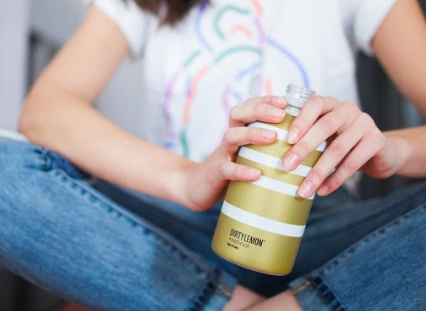Coca-Cola products are ‘out of touch with the modern consumer,' founder of Coca-Cola backed beverage co. says
Food and beverage behemoths Coca-Cola (KO) and Pepsi (PEP) have taken strides to evolve beyond the soft drink-centric firms they were when they first built their brands.
But even these changes haven’t kept pace with new consumption demands, according to Zak Normandin, founder and CEO of Iris Nova.
“Those products are very out of touch with the modern consumer. So they're high sugar, high calorie, carbonated soft drinks, for the most part,” Normandin said. He spoke in an interview during Yahoo Finance’s monthly Breakouts show.
Normandin’s venture Iris Nova serves as the parent company of the flagship beverage brand Dirty Lemon, which has sold more than 2 million bottles since inception in 2015, largely to millennial women. Celebrities including Cardi B, Karli Kloss and Kate Hudson have promoted the low-calorie, functionally focused lemon beverages, which are infused with wellness-intended ingredients like matcha, collagen, ginseng and chromium.
New York-based Iris Nova also owns a set of cashier-less brick & mortar retail locations – each called “The Drug Store” – where passersby can purchase Dirty Lemon beverages simply by texting a customer service line. The company has also announced plans to invest $100 million over the next 3-5 years in up-and-coming beverage brands, which will then be added to the company’s portfolio.
‘Big disconnect’
To be sure, incumbent leaders in the nonalcoholic beverage world have shaken up their own product lines to try and keep pace with consumer trends and tastes. And even as new players come into the space, Coca-Cola and Pepsi are still among the biggest players in the global non-alcoholic beverage space, generating about $32 billion and $64 billion, respectively, in total revenue during the last full fiscal year.
Coca-Cola’s June quarter results were driven by less sugary soft-drinks like Coke Zero Sugar, helping core soda volumes rise 4% during the quarter. And the company acquired British coffee chain Costa for $5.1 billion earlier this year – its largest brand acquisition in company history – in a move to expand the company’s offerings beyond beverages.
Meanwhile, PepsiCo’s Frito-Lay snack segment helped drive its most recent quarterly earnings beat, along with sales in sparkling water and other healthier drink segments. Normandin acknowledged Pepsi’s Bubly and LIFEWTR brands as “both very successful case studies in reacting to changing consumer demands.”
“When you look at the products, they are trying to shift. But these organizations are so large, and in many ways, they're dependent upon bottlers to produce their products,” Normandin said. “And I think that that's actually the big disconnect between the innovation that consumers want and the products that, you know, organizations like Coca-Cola want to be bringing to their consumer base.”
Normandin said a company like Coca-Cola is a business-to-business (B2B) enterprise, full of what he called “inefficiencies” due to there being so many points in the supply chain and distribution network.
“They sell syrups to the bottlers and the bottlers put the bottles of the product that they produce onto trucks. The trucks bring the product to stores. The stores sell the product to consumers,” Normandin said, “So the stores are actually the B2C (business-to-consumer) part of the equation. And there's a lot of inefficiency and a lot of people that need to, you know, touch that bottle before it gets to the consumer. We've cut out all of those middlemen, and we have a relationship direct with the consumer.”

Iris Nova, by contrast, has what Normandin considers to be a closer customer relationship, given that consumers make purchases by texting the brand directly, with bottles then being shipped to them within one to two days. About 90% of Dirty Lemon orders are fulfilled via text – and Normandin said he plans to extend this ordering system to new brands coming onto the platform.
Iris Nova, incidentally, counts Coca-Cola as a major investor. The company led a $15 million seed funding round late last year into Normandin’s enterprise, which also included participation from venture capitalist firms Greycroft and Imaginary Ventures.”
“Our vision is to actually compete with Coca-Cola one day,” Normandin said.
For now, other high-end wellness focused products remain Iris Nova’s main competition, he added. At $10 per bottle, the company’s Dirty Lemon brand is what Normandin called a “premium product.”
“If you have $1,000 of discretionary income every month, we have to compete with beauty brands. We have to compete with restaurants. We have to compete for the mindshare of the consumer for, you know, a portion of those dollars,” Normandin said. “So we look at any products that are being targeted to millennials or, you know, even older age range as our product selection, you know, continues to grow because those are the products that could be competing for their attention as well.
Normandin has his eyes set on an initial public offering for Iris Nova within the next three years, he said. While declining to disclose current financial specifics, he expects Iris Nova will have hit $100 million in annual revenue profitably by that point.
—
Emily McCormick is a reporter for Yahoo Finance. Follow her on Twitter: @emily_mcck
Read more from Emily:
Economy adds 164,000 jobs in July, unemployment rate sits at 3.7%
Netflix’s 2Q global paid subscriber additions miss expectations
Tech companies like Lyft want your money – not ‘your opinion’
Follow Yahoo Finance on Twitter, Facebook, Instagram, Flipboard, LinkedIn, and reddit.
Read the latest financial and business news from Yahoo Finance

 Yahoo Finance
Yahoo Finance 
